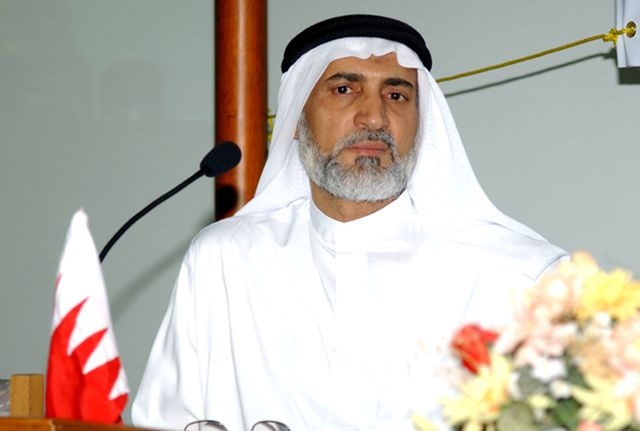Abdulwahab Husain Ismaeel is a 69-year old Bahraini national from the town of Nuwaidrat. He is one of the “Bahrain Thirteen”- a group of thirteen religious leaders, political opposition leaders, and human rights defenders who led non-violent pro-democracy protests in Bahrain in February 2011 and who were arrested in March 2011 for their leading role in these protests. He is currently in Jau Prison where he is serving a life sentence for his political opposition and his prominent leadership.
Bahraini security officials, consisting of armed commando and military forces, as well as individuals in civilian clothing, arbitrarily arrested Abdulwahab on 17 March 2011. They broke through his front door, searched the entire house, ruined furniture and assaulted individuals in the house. They did not have a warrant and they did not give a reason for his arrest. The officials took Abdulwahab away and forcibly disappeared him from the moment of his arrest until his trial began three months later.
During his disappearance, military officers interrogated and tortured Abdulwahab because of his political activities and his Shia religious beliefs. Officials interrogated him at both Al-Qalaa Prison and Al-Qurain Military Prison. Officers did not permit his legal counsel to be present. The officers beat and kicked him, spit in his mouth, forced him to stand for long periods of time and doused him in frigid water. Bahraini authorities did not allow doctors to examine him for evidence of torture and have not, in turn, provided adequate treatment for proper care and healing.
In 2012, he was sentenced to life in prison on spurious charges of attempting to overthrow the government and conspiring with outside groups and forces. The ruling was upheld by the court of appeal in September 2012 and by the court of cassation in January 2013. He has since been in Jau Prison and deprived of adequate family visits.
Prior to his arrest, Abdulwahab had multiple health concerns and conditions such as diabetes, nerve damage, sickle cell disease, retinal detachment, polyradiculoneuropathy (a rare autoimmune disorder of deterioration of bodily tissues), disc in his spine and neck, visual impairment, and blood pressure issues, among other health concerns. He has undergone massive weight loss while imprisoned. Prison authorities continue to deny him access to appropriate medical attention through examinations and appointments with doctors who know his case and conditions, despite repeated requests.
His health has continued to deteriorate and he is more unstable without proper treatment and attention. Even a judicial request for treatment in private hospitals equipped for the specialization of care that he so requires has been ignored by the prison administration overseeing his imprisonment.
In December 2022, authorities at Jau Prison imposed strict restrictions on him despite his advanced age and his need for crutches to walk. They prevented him from going to the hospital without being shackled in chains as a condition to go. His family did not know the reason for this sudden decision, despite his previous transfers being unrestricted. Additionally, all his medical appointments at external hospitals were canceled, leading to a serious deterioration in his health. To this date, April 2023, he continues to suffer from medical negligence and his health has severely worsened. Due to his irregular blood sugar, the prison administration is obliged to transfer him for periodic examination by a specialist, and he currently requires insulin injections. Moreover, due to the restrictions imposed, he was deprived of treatment for the nerve problem he was suffering from before entering the prison, where he used to take it regularly at the military hospital. His appointments with a kidney specialist were also canceled, which were scheduled almost 10 months ago, despite his kidneys being affected due to his irregular blood sugar. For months, he has stopped receiving dental treatment and has not been transferred to three recent appointments, which has greatly worsened his condition.
ADHRB calls on Bahrain to uphold its human rights obligations by annulling the sentence against human rights defender and political activist Abdulwahab, and ensuring that any further legal proceeding is not arbitrary in nature and instead conducted in a fair, just and ethically moral way aligning to the international human rights standards that exist. Additionally, we call on the authorities to investigate claims of torture and ill treatment, and to hold officials accountable. We further emphasize Abdulwahab’s fragile state as to his deteriorating condition of health, and call on the authorities to lift imposed restrictions and urgently provide him with the necessary treatment before it’s too late, and provide all prisoners with their medical needs.





